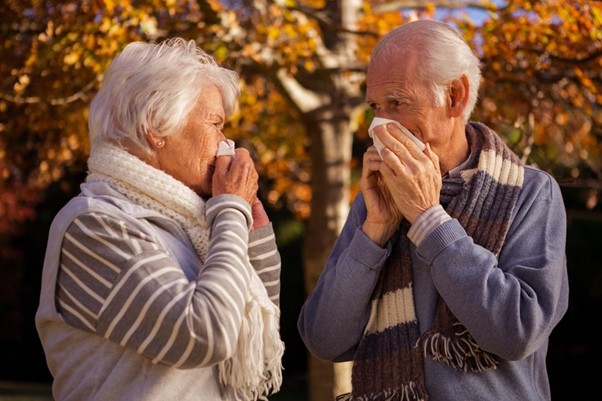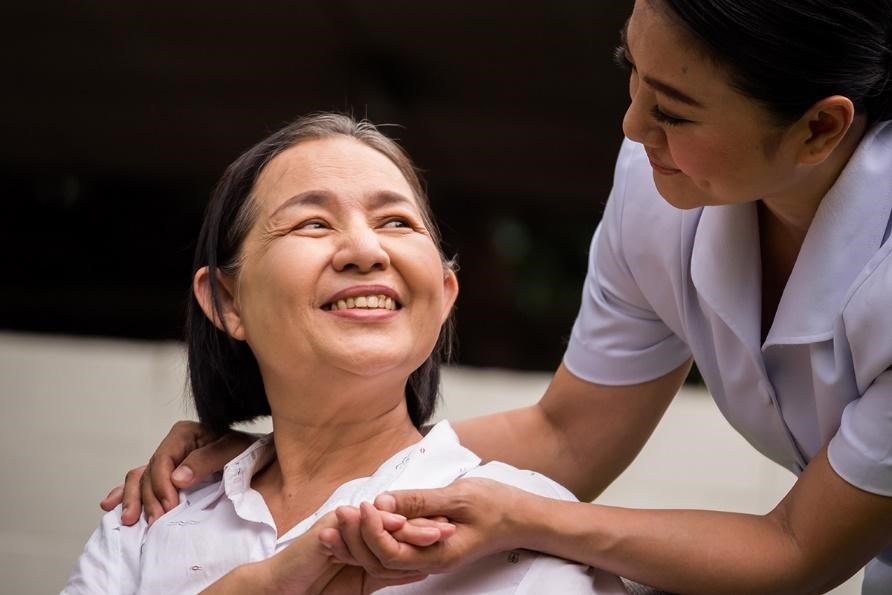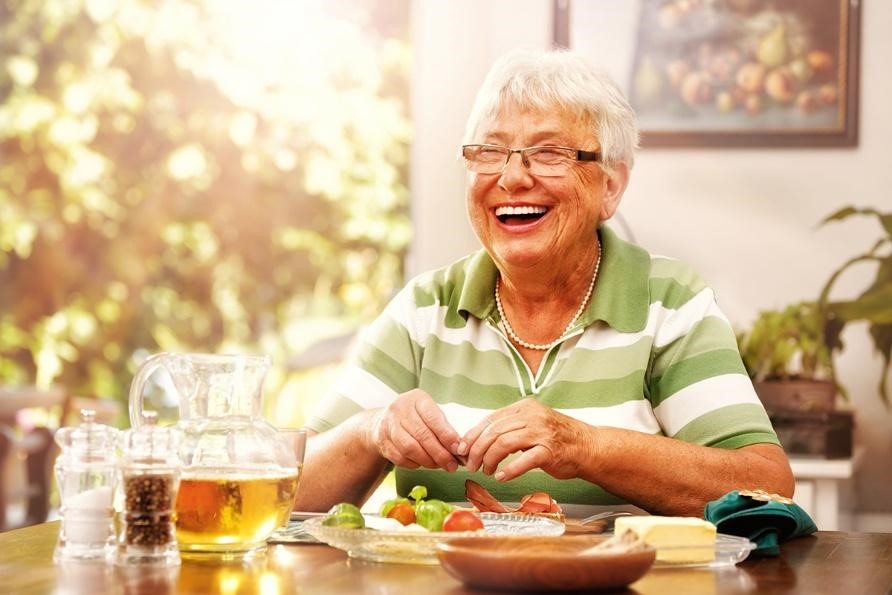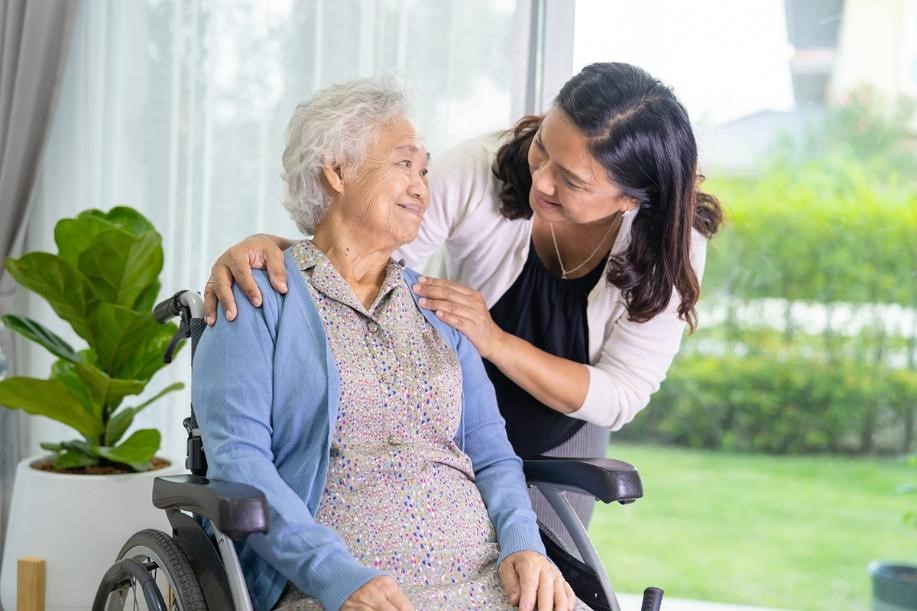
If you are the primary caregiver for a senior loved one who suffers from allergies, you know how difficult it can be to keep them comfortable and safe. Ohio allergies can cause all sorts of problems for seniors, including sneezing, coughing, itchy eyes, and skin rashes. In fact, several cities in Ohio have ranked as some of the worst spots for allergies.
In this article, we will provide some tips for caring for a senior with allergies. Keep reading to learn more!
Know What Symptoms You are Looking for
If your elderly loved ones are starting to experience more allergies than they have in the past, it’s important to be able to recognize the symptoms so you can get them the help they need. Allergic reactions can range from mild to severe, and in some cases can even be life-threatening.
Common symptoms of an allergic reaction include hives, swelling, difficulty breathing, and chest pain. If your loved one is experiencing any of these symptoms, it’s important to seek medical help immediately. There are a variety of allergy medications available that can help relieve symptoms and improve the quality of life for seniors with allergies. Always consult with a doctor or allergist if introducing a new medication.
Reduce the Influence of Triggers in Your Life
Many seniors suffer from allergies, which can be triggered by many different environmental factors. Pollen, dust, and animal dander are just a few of the many things that can cause an allergic reaction. In some cases, these triggers can be difficult to avoid. However, there are a few steps that you can take to reduce their impact on your life.
First, try to keep your environment as clean as possible. This means vacuuming regularly, dusting surfaces, and using an air purifier. You should also avoid using harsh chemicals, as they can exacerbate allergies. If you must be around allergens, try to wear a mask or take an antihistamine beforehand. By taking these precautions, you can help to reduce the influence of allergens in your life. Always consult with a doctor or allergist if introducing a new medication.
Stay Hydrated
Dehydration is a common problem for seniors and can be made worse by allergies. When you’re dehydrated, your body is less able to fight off infection, which can make allergic reactions even worse. It’s important to make sure that your loved one stays hydrated by drinking plenty of water. If they are having a hard time drinking enough fluids on their own, you can try using a straw or adding ice chips to drinks.
Get Enough Rest
Allergic reactions can cause seniors to become tired and fatigued. When this happens, it’s important for them to get plenty of rest. Make sure that your loved one is taking regular breaks during the day and going to bed early enough to get a good night’s sleep. Sleep has been proven to help improve allergy symptoms, so make sure your loved one is getting enough of it.
Take Action
If you see that your loved one is starting to experience more allergies, don’t wait to take action. Talk to their doctor or allergist about the best way to treat their allergies and help them get back to feeling comfortable and safe.
Caring for a senior with allergies can be a daunting task, but there are some simple steps you can take to make the process a little easier. First, it’s important to identify the source of the allergies. This can be done by keeping a journal of your senior’s symptoms and noting any possible triggers, such as certain foods or seasonal changes.
You should also keep a close eye on expiration dates on food items and medications, as expired products can trigger allergic reactions. Finally, it’s important to have an emergency plan in place in case your senior has a severe reaction.
Natural Remedies or Supplements Can Help Relieve Allergy Symptoms
Allergies are a common problem, affecting millions of people worldwide. Symptoms can range from mild annoyances to severe reactions that can be dangerous or even life-threatening. While there are many different medicines available to help control allergy symptoms, some people prefer to use natural remedies or supplements.
Some popular natural allergy remedies include quercetin, butterbur and bee pollen. Quercetin is also a plant-based compound that has been shown to help reduce histamine production, providing relief from sneezing, runny nose, and itchy eyes. Butterbur is another plant-based remedy that has been used for centuries to treat a variety of conditions, including allergies.
Bee pollen is sometimes used as a preventative measure against seasonal allergies, as it contains a variety of vitamins and minerals that can help to boost the immune system. While natural remedies can be effective for some people, it’s important to consult with a doctor before starting any new supplement or remedy.
Follow these tips for caring for a senior with allergies, and you can help them to stay comfortable and safe.
We take great pride in keeping our clients safe and healthy, which includes working with families to help ensure allergies are kept in check. For further questions, to request resources, or to inquire about having your loved one utilize our services, contact Cherished Companions today on our website or call (440) 484-5390.
+ Bonus Caregiver Questions To Ask Before You Choose An Agency

- Get recommendations. Talk to healthcare professionals in the field, your mom or dad’s doctor, and any friends or family members you know who have worked with a home care agency previously. Ask them which agencies they have had the best experience with and find out what they think about each provider you plan to contact. Look online for reviews and ratings. Do they have a lot of reviews? Look for independent review sites that have verified reviews such as bestofhomecare.com and look for agencies that have awards. See if they are accredited through the BBB and if they have an A+ rating.
- Check references. The agency should supply a list of references such as health agencies, rehabilitation facilities, social workers and other providers they have worked with. Call these references and ask them whether they regularly refer patients to the agency and what sort of feedback they have heard from clients.
- Consider the agency’s technology innovation. Does the agency have an online portal where you can view care plans and communicate with caregivers? Do they respond to communication quickly? Can you access information about your loved one via mobile? These are all useful ways to stay informed about your mom or dad’s care.
- Understand their process. Will you have the opportunity to interview caregivers? What happens if the caregiver isn’t a good fit? Will the same caregiver serve your loved one at each visit? How does the agency provide accountability for quality of service?
Download Your Guide
We understand the importance of finding the right caregiver for your family member. The questions included in this guide will help make this process as straightforward and informative as possible.
Give your mom or dad the gift of independence at home with quality, compassionate in-home care.
{{cta(‘004c753b-1102-4902-8dbd-81225424a3b3′,’justifycenter’)}}






